Game of Thrones: A Telltale Game review
UPDATED: The first season of Telltale's blood-soaked, multi-sided story draws to an unsatisfying close

SPOILER ALERT: If you haven’t watched HBO’s Game of Thrones TV show or read George R.R. Martin’s A Song of Ice and Fire books, we recommend avoiding reading this review – and you probably shouldn’t play the game either. Its events begin at the end of the TV show’s third season.
Telltale Games has already struck a rich vein with its episodic adventure games based on comics The Walking Dead and The Wolf Among Us, and now its got hold of its biggest franchise to date: HBO’s insanely popular Game of Thrones TV series.
Game of Thrones is being released in six episodes for Windows, Mac OS, Xbox 360, Xbox One, PlayStation 3, PlayStation 4, iOS and Android. Dates for each episode’s release aren’t yet confirmed, but Telltale says a new one should arrive every four to six weeks.
So is this union between one of the best current TV shows and the makers of some of the finest interactive stories a marriage made in heaven? Or a Red Wedding-level disaster? Read on for our thoughts.
Note: As Game of Thrones is being released in episodes, we’ll be updating this review – and adjusting its score – as the series progresses. Make sure to check back each time a new instalment arrives.
06/02/15: With Episode Two, “The Lost Lords”, now available in addition to Episode One, “Iron From Ice”, our first update is live. Scroll down to see what we made of it.
31/03/15: Having just played through Episode Three, “The Sword in the Darkness”, we’ve added another update to the review. See below…
02/06/15: It’s that time again. Scroll down the page to read our updated review following the release of Episode Four, “Sons of Winter”. Just two more episodes to go now…
24/07/15: Episode Five, “A Nest of Vipers”, dropped this week. Find out what we made of the first season’s penultimate instalment below.
18/11/15: We’ve updated our review with our thoughts on Episode Six, “The Ice Dragon”, the final episode in this first season of Telltale’s Game of Thrones. Scroll down to find out if it’s a grandstanding finish, a damp squib… or somewhere in the middle.
READ MORE: The Walking Dead: Episode One review
Meet the Forresters
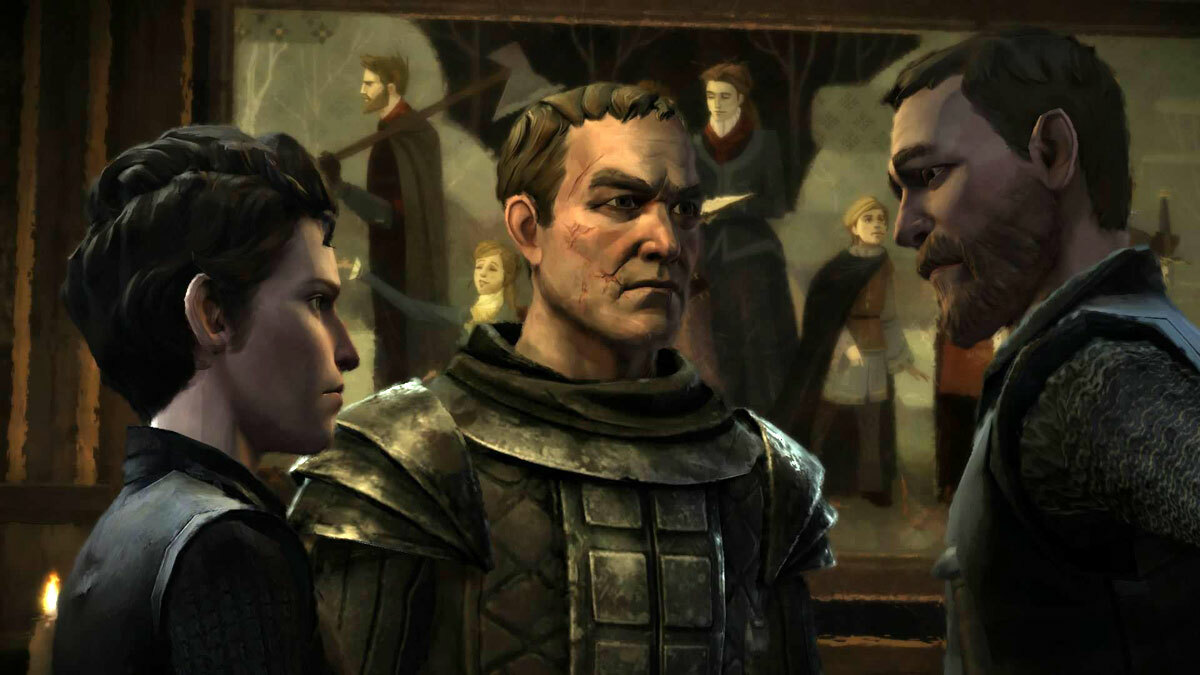
The game is focussed on House Forrester, a minor noble family of the North and for thousands of years, loyal bannermen to the Starks of Winterfell. The Forresters’ castle at Ironrath is surrounded by a forest of Ironwood trees: the source of the strongest wood in all of Westeros. The family’s attempts to retain control of this forest are integral to the plot of the first instalment.
The game kicks off during the events of the infamous Red Wedding, which fans of the books or show will know spells terrible, terrible things for loyal northerners like House Forrester. With the Starks all but destroyed and the North now under the rule of the treacherous and ruthless House Bolton, the Forresters are in a precarious position: do they defy their new liege and face extermination, or bend the knee and become lackeys?
Episode One: “Iron from Ice”
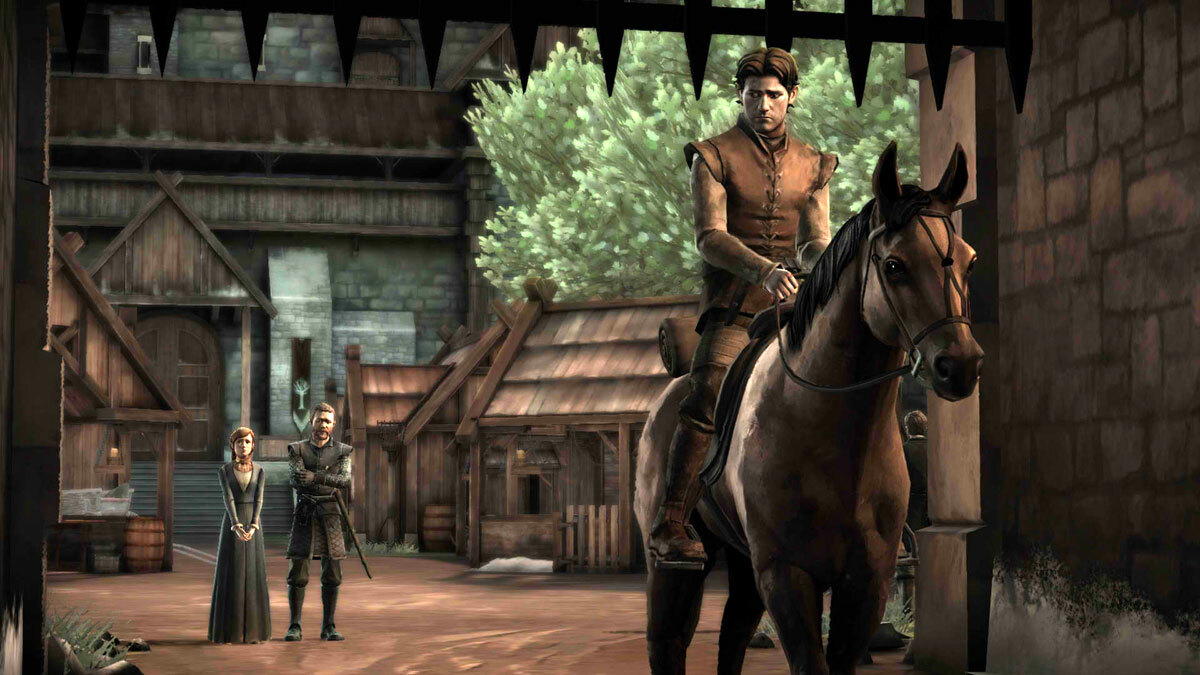
Rather than control a single character, “Iron from Ice” puts you in the boots of three members of the Forrester household. There’s young Ethan Forrester, thrust into a position for which he is ill-prepared; his eldest sister Mira, a handmaiden in the service of queen-to-be Margaery Tyrell in King’s Landing; and lastly Gared Tuttle, son of a pig farmer and squire to Lord Gregor “the Good” Forrester, head of the house. Telltale says five characters will be controllable in all, so we’re expecting other Forresters (and there are a fair few of them) to play a larger part in future instalments.
Telltale’s decision to focus on a minor house of Westeros (House Forrester is not mentioned in the show, and barely registers in the books) is a clever one: it means the player can live in the Game of Thrones TV show’s world without interfering with or derailing the major timeline or affecting “canon” events.
You do, however, interact with familiar characters from the show. In “Iron From Ice” there are appearances by Cersei and Tyrion Lannister, Margaery Tyrell and Ramsay Snow, all voiced by their TV show actors. The “next time” sequence at the end hints at other show favourites that will appear in the second episode.
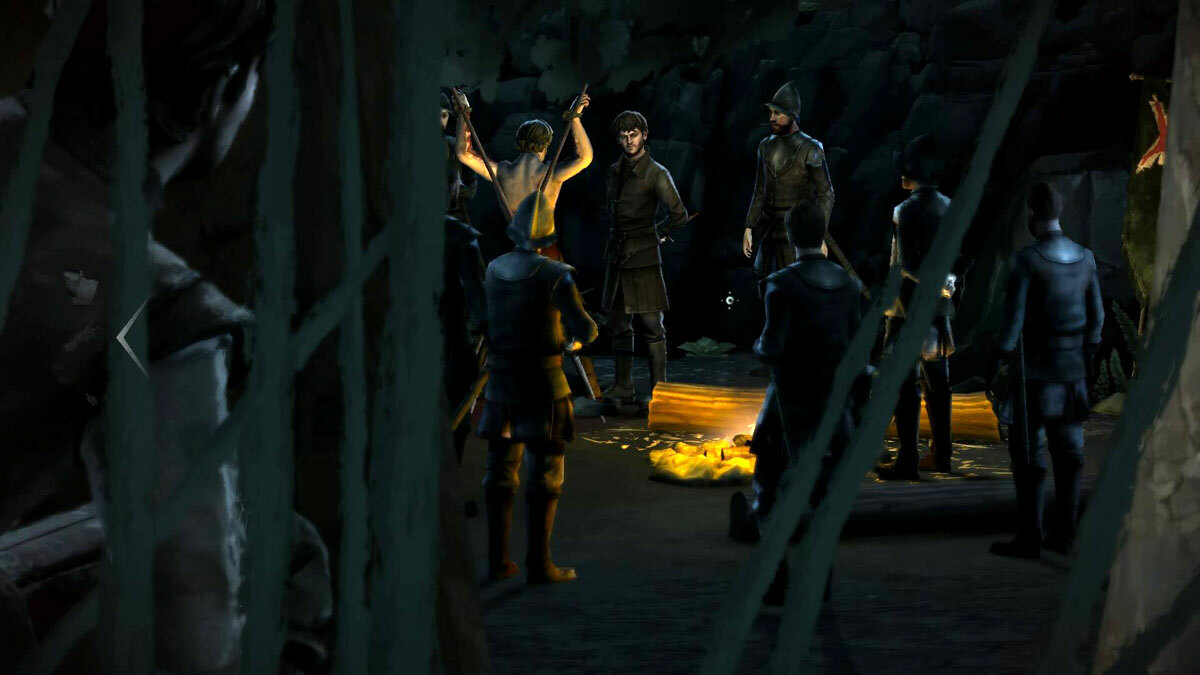
We won’t delve into the game’s story too much, lest we spoil any of it for you, but so far – and we reckon the first episode took two to three hours to complete – it’s pretty much up to the standard we’ve come to expect from Telltale.
As the first episode in a six-episode “season”, Iron From Ice often has the feel of a prologue. There’s a lot of scene-setting that needs to be done, and with three characters’ stories being told, no character gets as much development as, say, Lee in the first episode of The Walking Dead.
That said, there’s still a nice pacing to proceedings and room for a number of suitably Game of Thrones-esque shocks. Which, obviously, we can’t tell you about. And it’s left us eager to play episode two, where we feel the consequences of our actions will begin to make themselves clearer.
Episode Two: “The Lost Lords”
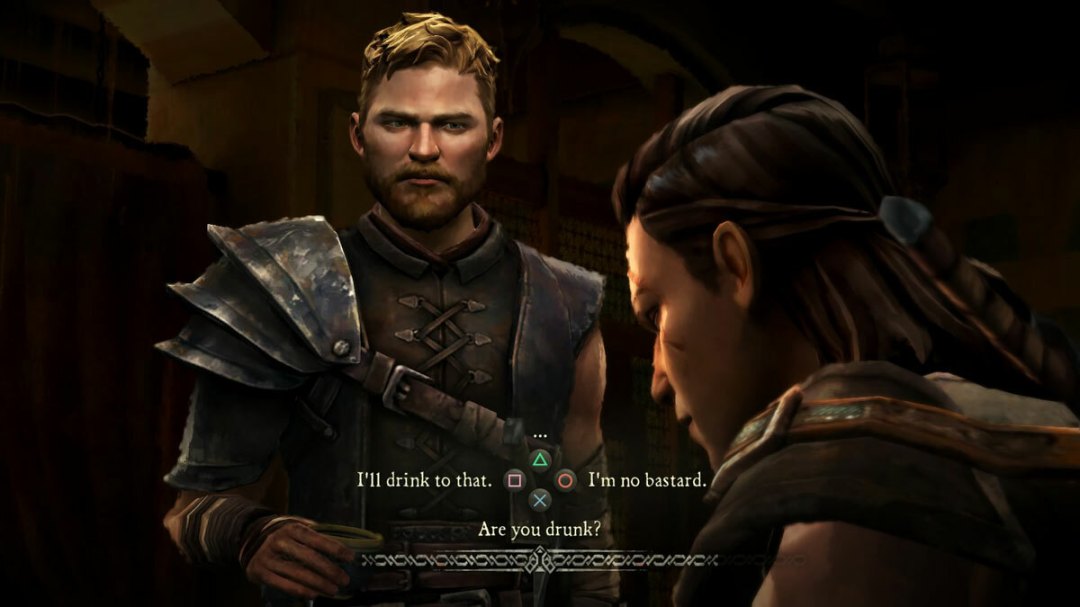


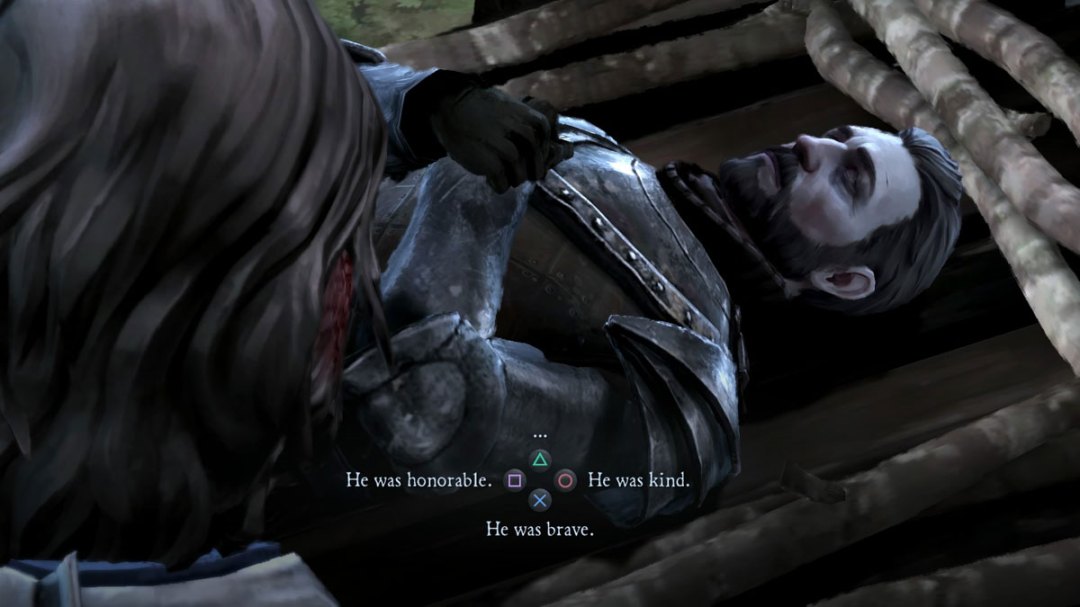
Episode Two continues the story with the same tone and feel of the first episode. By the end of “Iron from Ice” House Forrester is in, if anything, a more precarious position than it was at the beginning, and that puts immense pressure on you to make the “right” choices. We’re starting to feel for these characters and we want them to succeed, and to right the wrongs that have been done to them in the first installment.
Again, there are a few quick-time action scenes, including an enjoyable bit of crossbow practice and a delightfully gory brawl in a tavern.
We don’t want to spoil anything, but suffice to say their are two new members of the Forrester household to control in “The Lost Lords”, and the episode’s title hints at who they are. One is Asher, the second son of the family now living in exile as a mercenary in Essos. The other… well, you’ll have to discover that for yourself, but it delivers the biggest surprise of the episode – and a welcome ray of light in what is shaping up as a very grim tale.
Most of the action once again takes place at Ironrath and King’s Landing, but Asher’s segment of the story means we get to visit a new continent and the slaver-run city of Meereen. Another new location this time around is Castle Black, home of the Night’s Watch, and it’s here another familiar face from the TV show crops up. Yes, it’s none other than everyone’s favourite bastard and fan theory subject, Jon Snow – voiced by his show actor Kit Harington.
The second episode has only served to draw us more deeply into Telltale’s story. There are now characters we’re rooting for and characters we hate – and the fact that we get to have a say (at least in theory) in which side comes off the best is leaving us awaiting part three with baited breath.
Episode Three: “The Sword in the Darkness”
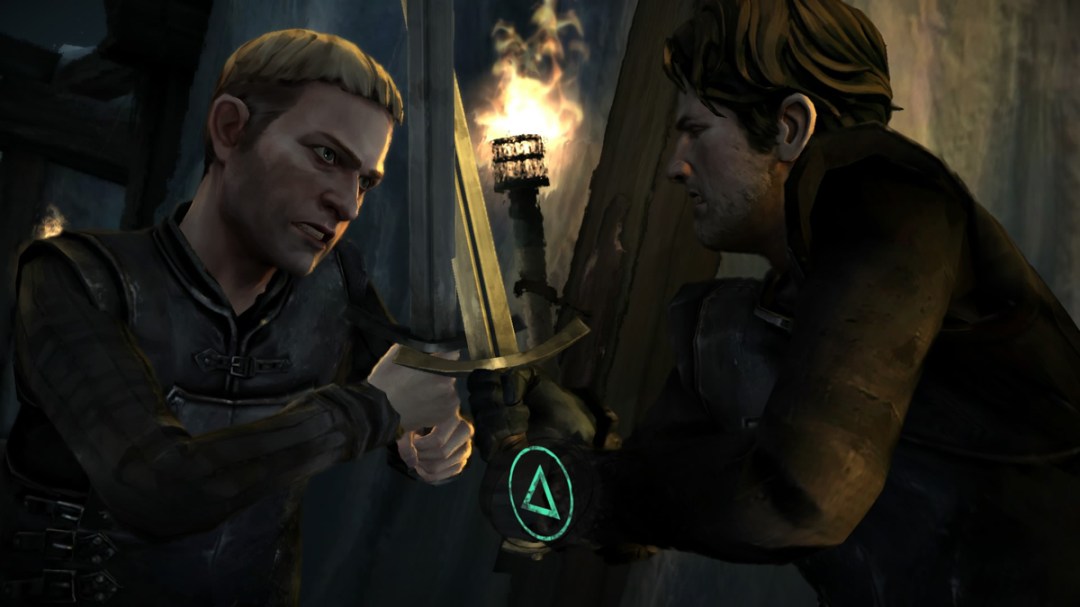

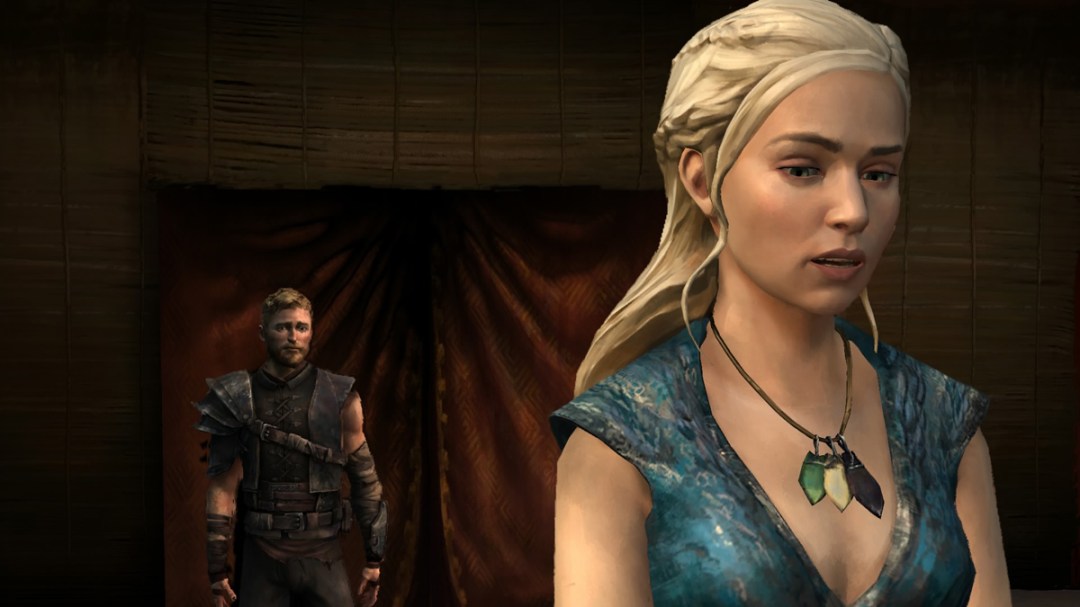
Without wishing to spoil too much, the third episode is lighter on shocks and surprises than the first two. It’s not a huge problem, mind you: if you’re still playing now you’ll already be invested enough in the Forresters’ story – flashiness isn’t really required as we near the mid-point of the series.
Suffice to say that you can, in general, expect more of the same in this instalment, which takes place around the time of the show’s momentous “Purple Wedding” episode. As with the Red Wedding scene in the first episode, it’s interesting to see one of Game of Thrones‘ major events from a different viewpoint than the show’s. Here’s it’s handmaiden Mira that’s nearby when Joffrey and Margaery’s nuptials get hectic – although she’s got bigger problems to consider than what the king ate for lunch that so disagreed with him.
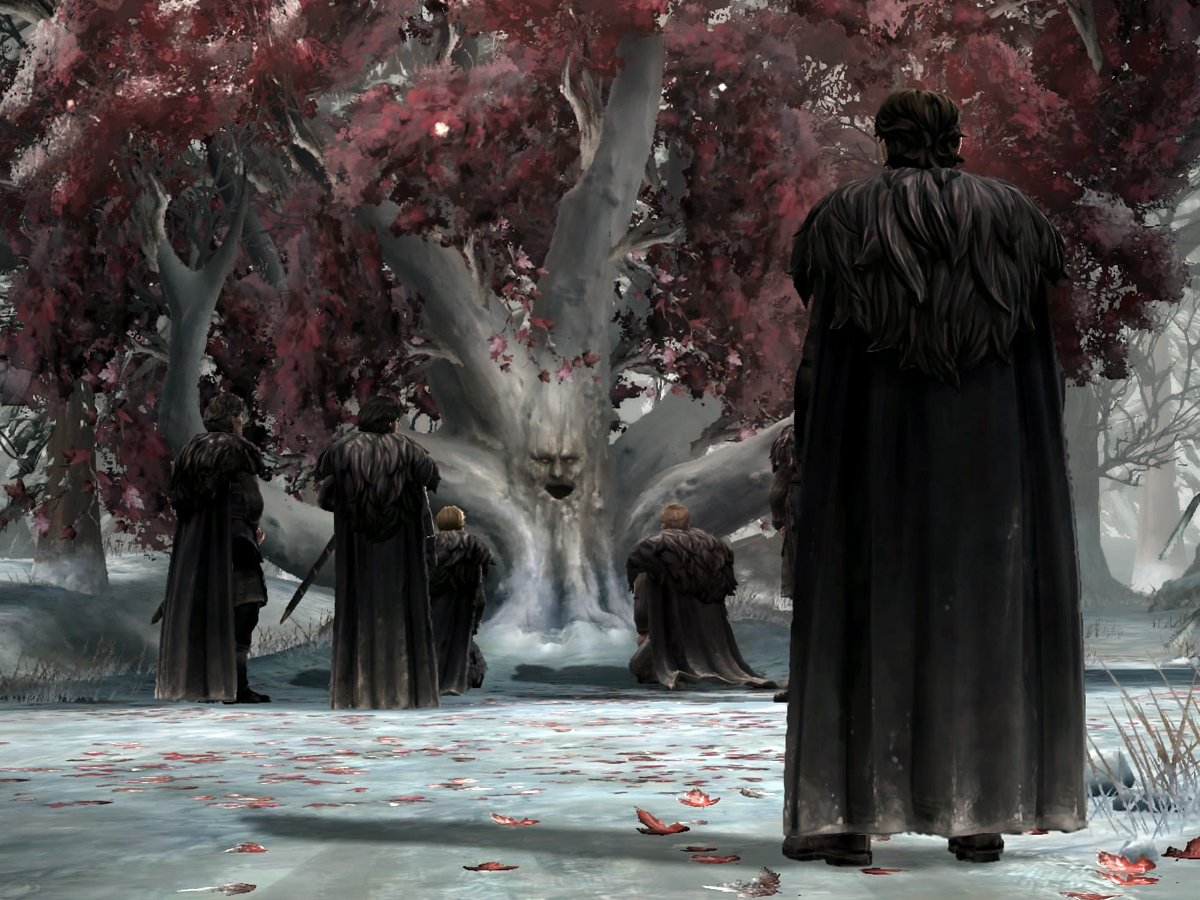
Other sections take place at The Wall (featuring the best fight of the series so far – albeit a quick time event, like pretty much every action sequence in Telltale’s games), the Forrester home of Ironrath and, far away to the east, Meereen, where a certain would-be queen puts in an appearance – along with her unruly pet.
While “The Sword in the Darkness” could best be described as “more of the same”, it maintains the quality of the previous two episodes while also developing the story further. We’re halfway through the series now (there are six episodes in all), and Telltale is navigating the tricky mid-point quite ably. Roll on the next episode, where hopefully House Forrester can begin its rise back from the brink.
Episode Four: “Sons of Winter”
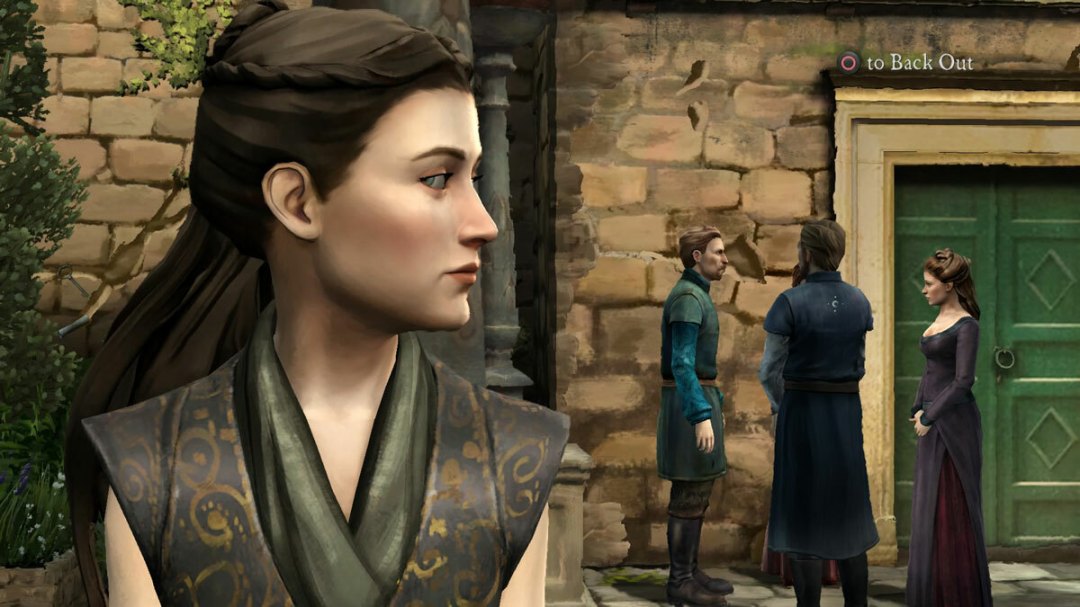
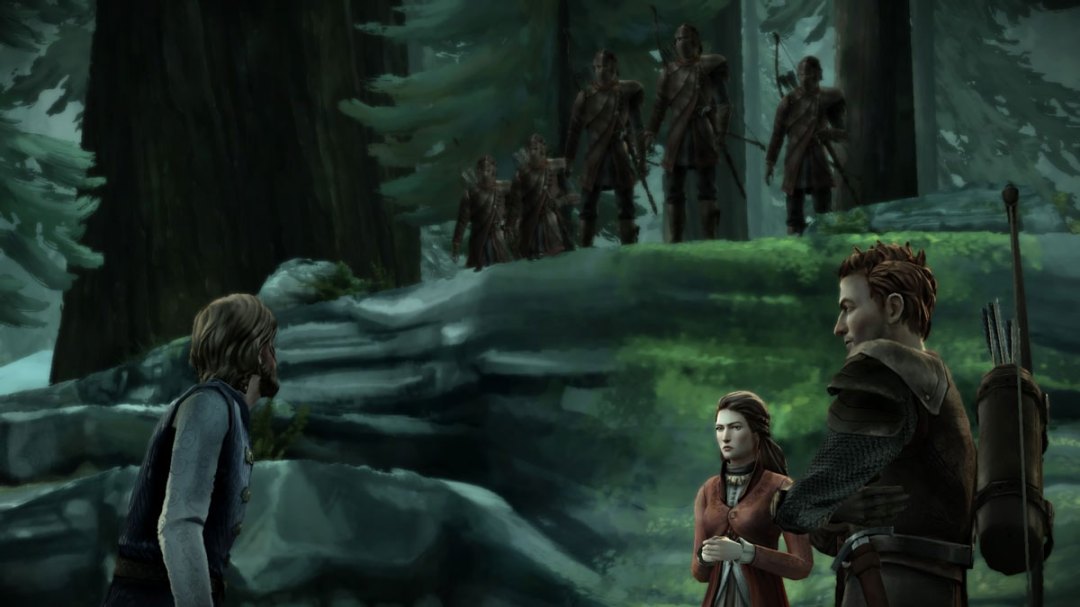

With characters and tone firmly established, the series is now able to crank up a gear and get some real story told. To put it bluntly: it’s all kicking off.
This might be my favourite episode so far in terms of the scenes you get to take part in. In “Sons of Winter”, each of the four controllable characters has lot to do and (surprise, surprise!) some tough choices to make.
Gared Tuttle is in disgrace, languishing in a freezing cell at Castle Black – but needs to break out in order to head north of the Wall to fulfil his secret mission. Asher Forrester seeks to win the favour of Daenerys Targaryen, but is in danger of losing the trust of his closest friend. Rodrik Forrester must walk blindly into the stronghold of his mortal enemy. And Mira Forrester… well, she’s already caught deep in a web of intrigue, lies and betrayal in King’s Landing. All four get standout moments this week, but for the first time I really enjoyed Mira’s story and the way in which her character has developed, Sansa Stark-like, from shy ingenue to sly schemer.
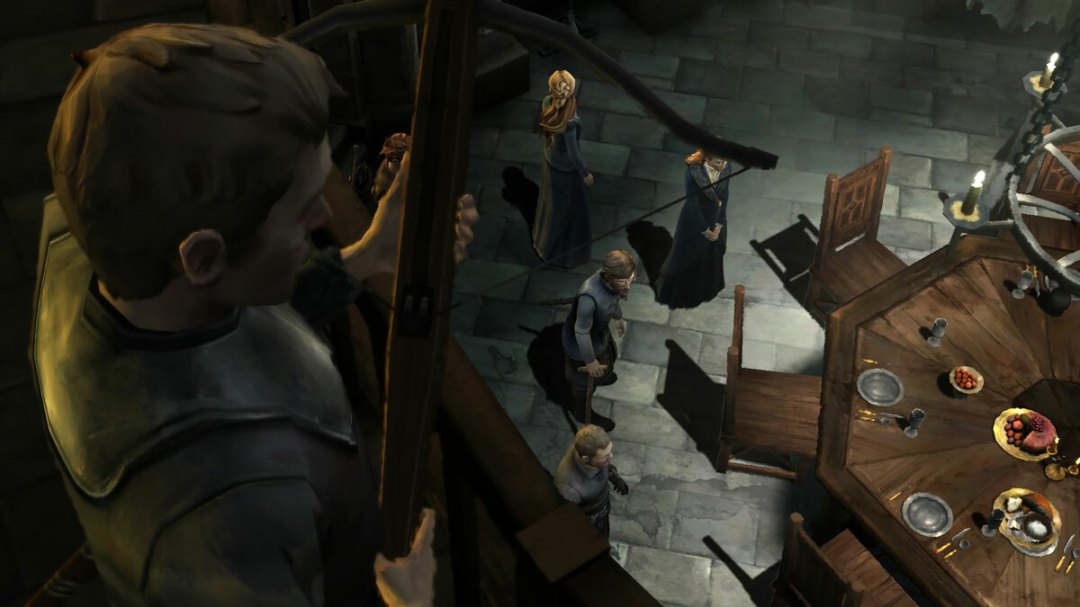
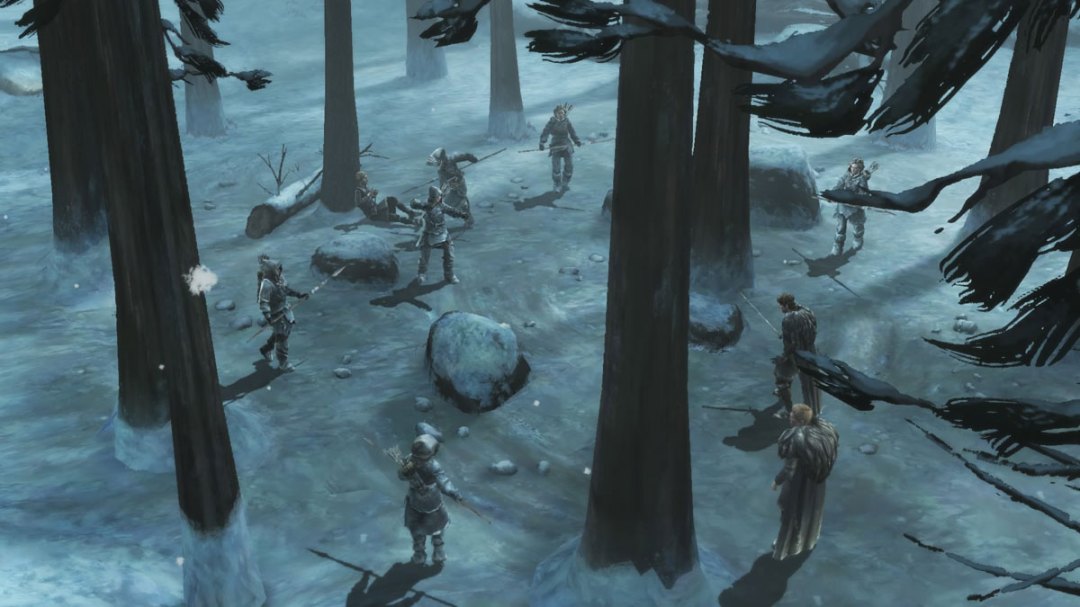
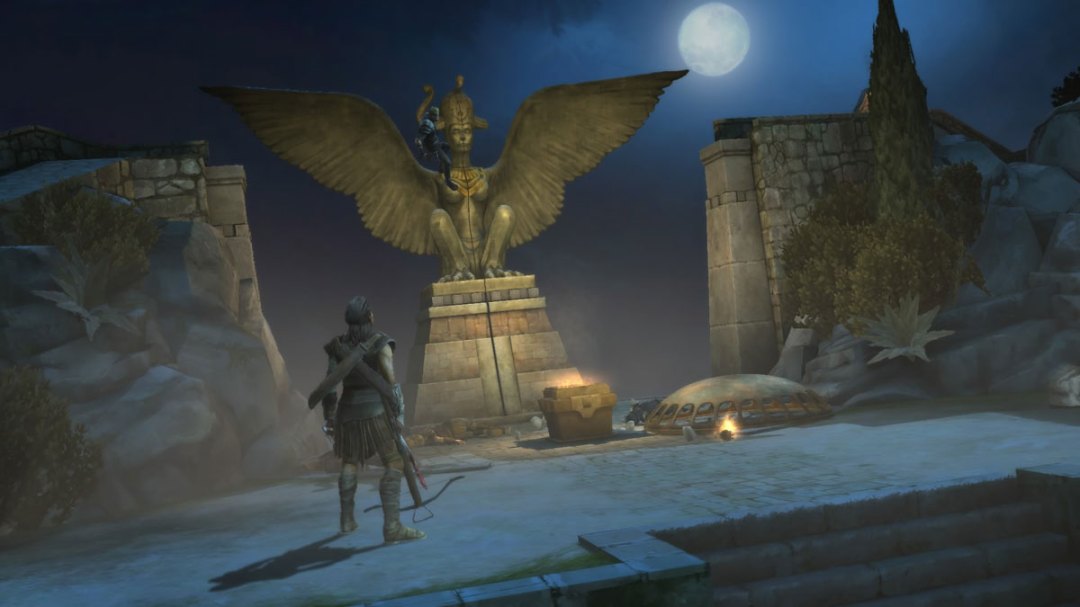
The amount of action – whether stealthy sneaking, all-out combat against a band of Wildlings or being faced with a life-or-death decision in the heat of a hostage situation – makes this episode one of the busiest yet, and I felt quite out of breath by the end of it.
As with previous episodes, there’s a real feeling of “Forresters against the world” here, with even characters we know from the show to be (relatively) just and kind giving the protagonists a hard time. This is Game of Thrones, after all, a world where death and betrayal looms around every corner and at the end of every conversation – or even, sometimes, in the middle of one.
That’s something to keep in mind now that, with certain small victories won, things do seem to be turning the Forresters’ way. I don’t expect it to be an easy ride to the end of the sixth episode, and I don’t expect everybody to make it out in one piece.
Episode Five: “A Nest of Vipers”
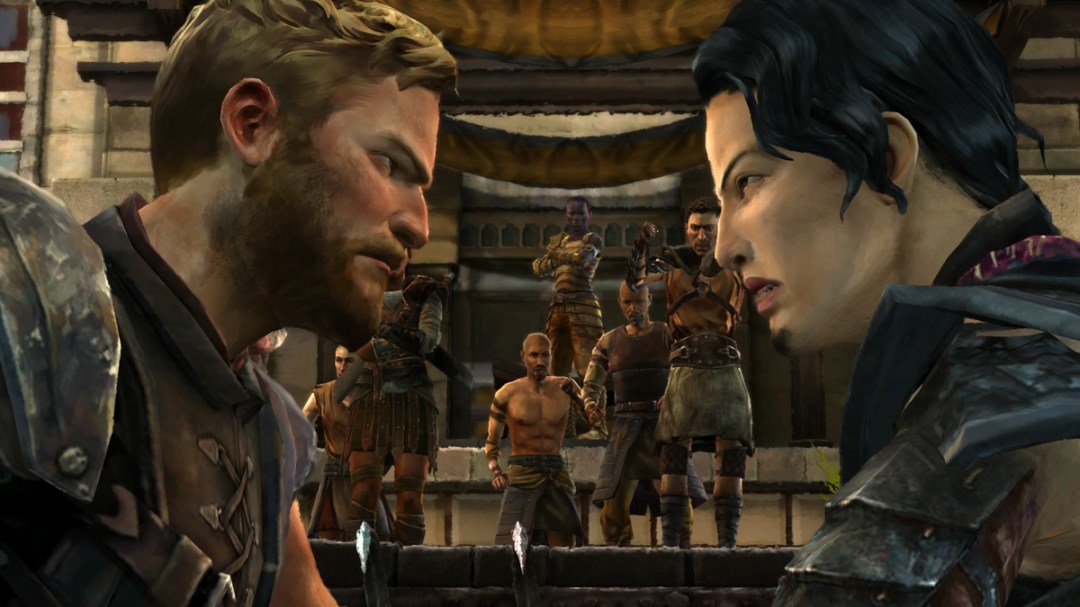
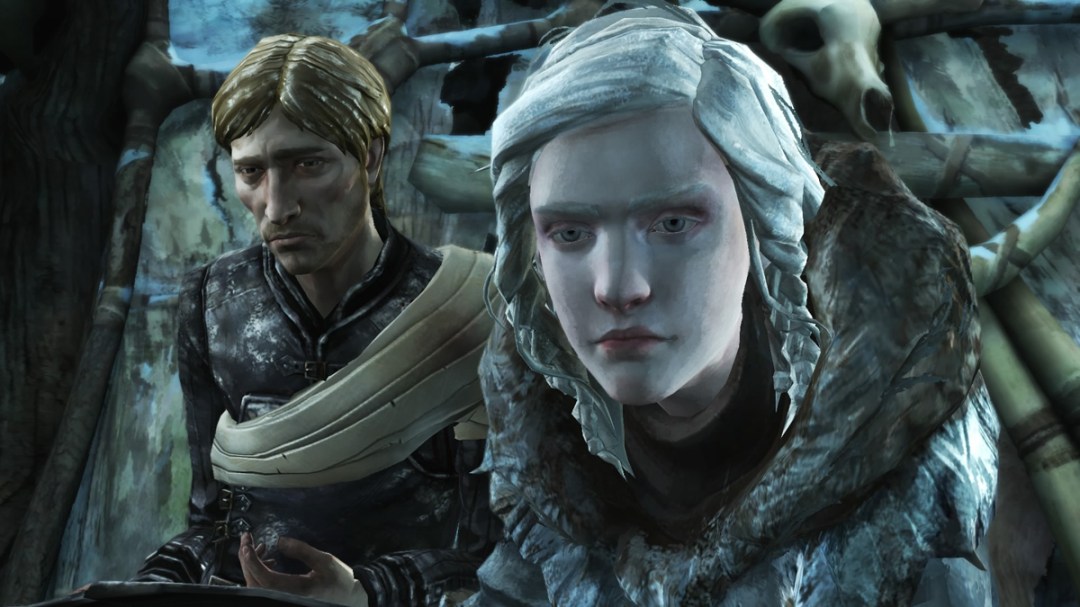

At their heart, Telltale’s games have always been about making choices. And that’s driven home many times in this episode. I can’t elaborate for fear of spoiling you worse than a vat of McDonald’s special sauce left out in the midday sun, but I can say this: while playing “A Nest of Vipers”, I had to make the two most difficult choices I’ve had to make in the series thus far, including one I really, really didn’t want to make.
This episode feels shorter than the preceding four, running to around 90 minutes in total, but it’s quite tightly packed with action – there are only, I think, three scenes in which you’re left to wander around environments, with the remainder being dialogue and action sequences.
Once again the story hops deftly between King’s Landing, Ironrath, Meereen and the lands north of the Wall, with the latter featuring the first in-game appearance of what us show-watchers know is the real threat overshadowing everything else: the White Walkers and (here, specifically) their army of blue-eyed reanimated corpses.
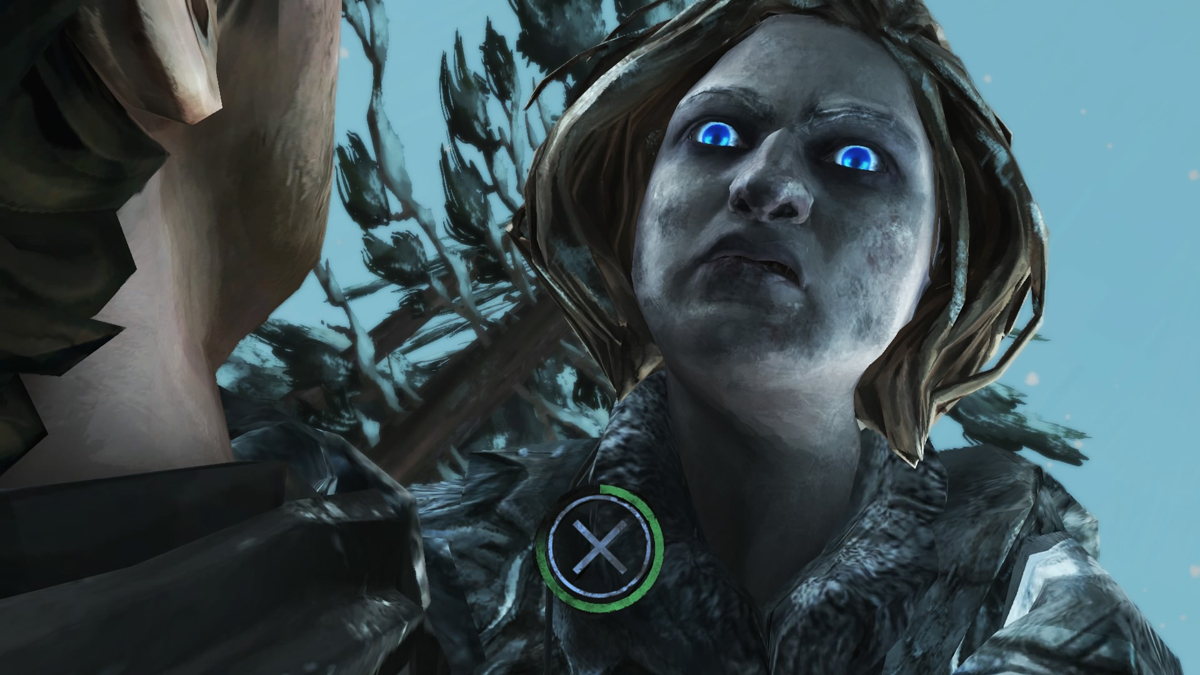
It’s an encounter that reminds you that all the backstabbing and politicking going on in Westeros and across the Narrow Sea in Essos will all become fairly academic once the White Walkers and friends find a way past the Wall and pour into the Seven Kingdoms. We certainly won’t see that in this season of the Game of Thrones game, and with only one episode and a couple of hours of playing time left it seems highly unlikely that all the threads at play in the Forresters’ story can be neatly tied up. Does that mean another “season” of this game is on the way? Unless Telltale can wrap everything up fairly swiftly, it could. And if the quality stays as high as it has been throughout the first, I’d certainly play it.
Episode Six: “The Ice Dragon”
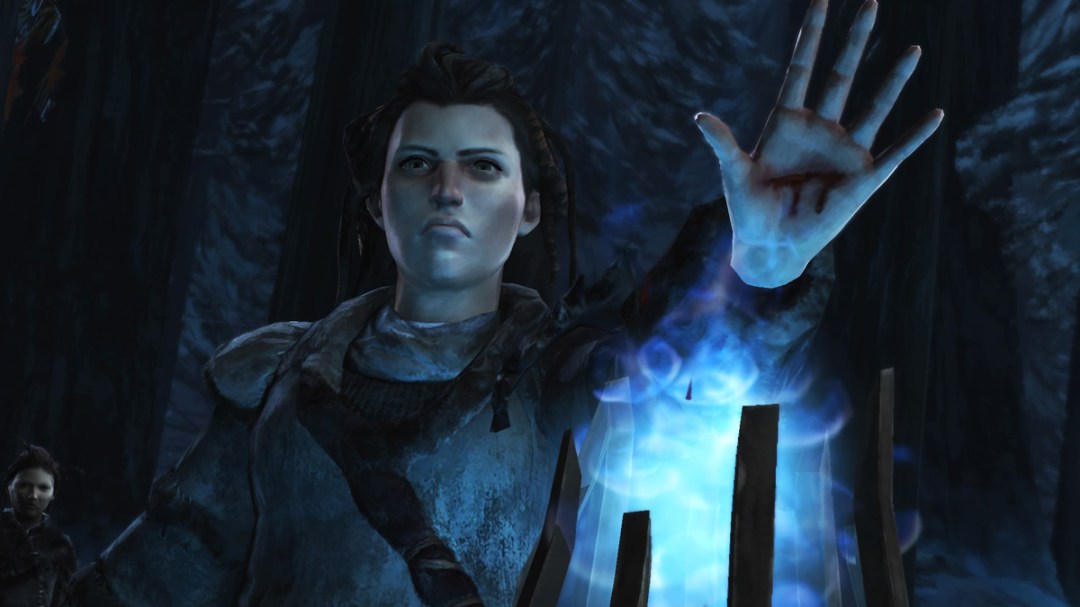
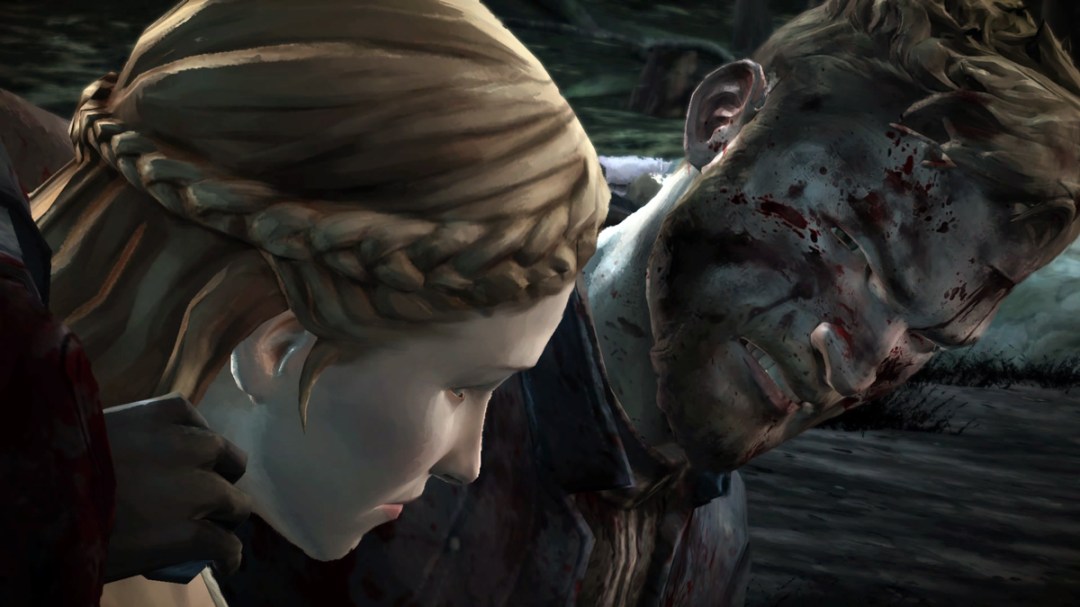
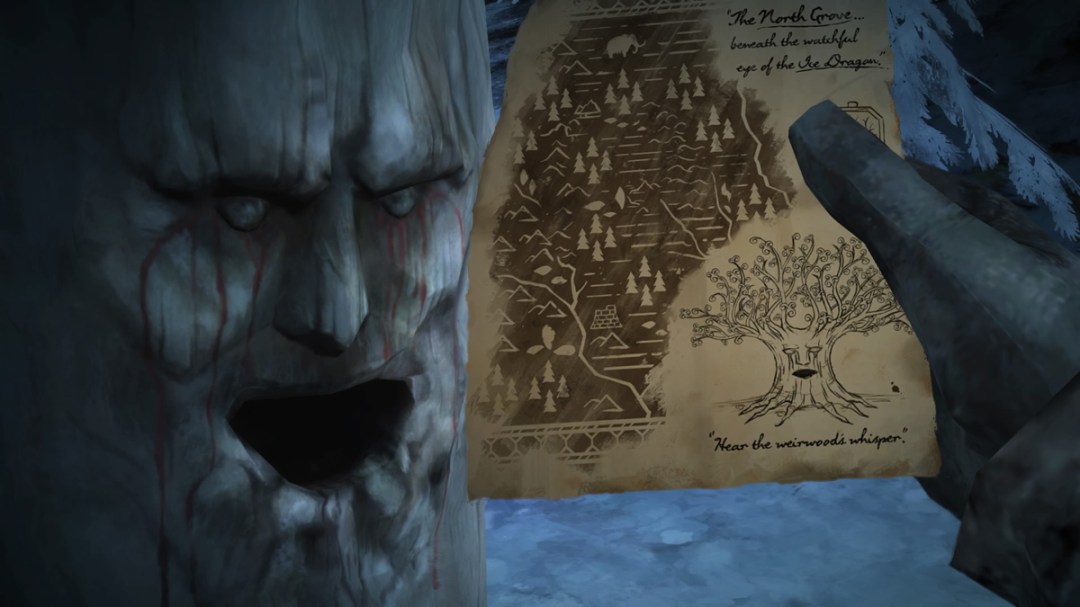
So here it is: the conclusion of Telltale’s first season of Game of Thrones. Will House Forrester triumph against the hated Whitehall clan? Will Mira escape King’s Landing? What will Gared Tuttle find north of The Wall? All these questions are answered in the final episode. Sort of. But not in a particularly satisfying fashion.
The season has been building towards what we were hoping would be a finale full of righteous vengeance and questions answered, but instead we’re essentially given a couple of action-packed scenes, the deaths of several important characters and some choices which are really, really hard to make, because both outcomes suck so hard.
In other words, the final episode is just like all the preceding episodes.
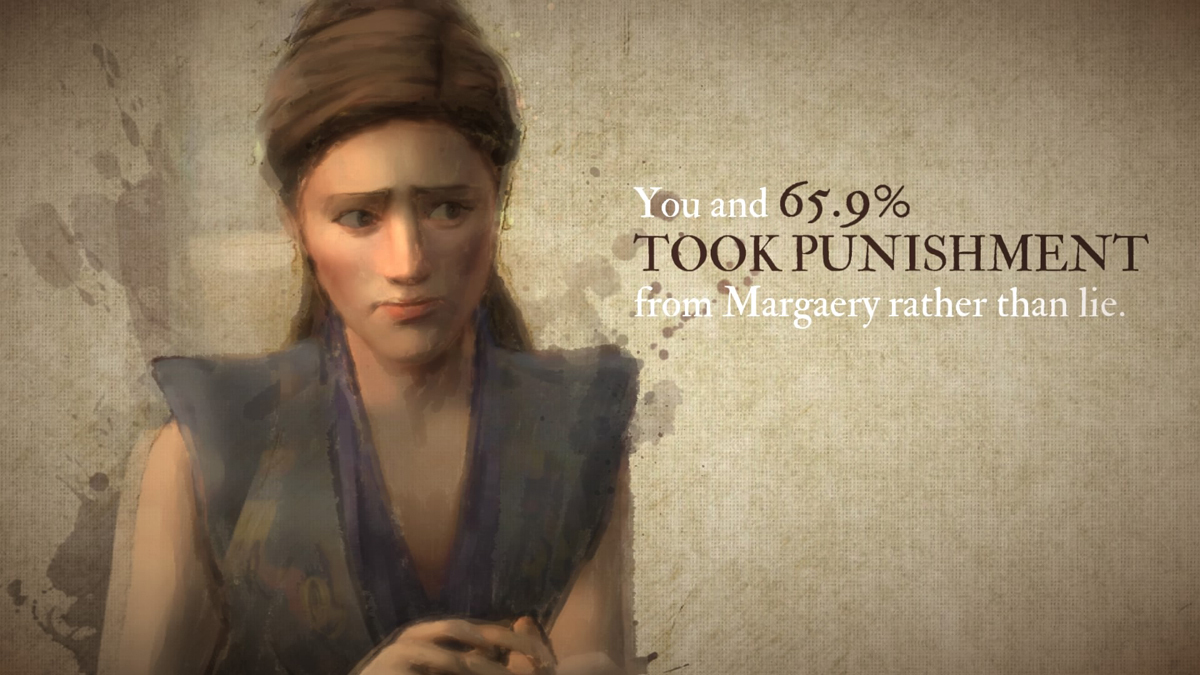
A lot of this is due to the fact that there’s clearly a second season coming, and it’s going to feature the same characters as this one. So this is just the ending of the first chapter of the longer tale, rather than the conclusion to a story. And it suffers because of that, because the ending – or at least the one I had – feels distinctly unfulfilling. There aren’t many threads getting tied up here, and neither is there a huge hook or cliffhanger to get you excited for the next season.
Telltale’s reviewer’s notes for the final chapter claim that there are multiple different endings, and recommend that reviewers play through the episode at least twice, but I haven’t had time to do that yet. But when I do get around to it and try a bunch of other choices, I have my doubts that they’ll lead to a vastly different set of ending circumstances, because the truth is that the pieces have to be in place for a follow-up season (probably at some point in mid-2016, coinciding with the end of the next season of the TV show). If I’m wrong, I’ll update this review with a few paragraphs.
The biggest difference between this episode and the preceding five is that, at the very end, you’re given a massive overview of your big choices, and are told how many other players made the same ones. It’s interesting, and gave me a slight urge to play through the whole lot again at some point in order to see how difference choices pan out, but it’s no replacement for a truly show-stopping end. And Telltale knows how to do them, as anyone who’s played the first season of The Walking Dead will know. For that to happen in Game of Thrones, we may have to wait a couple more years.
But is it a game?
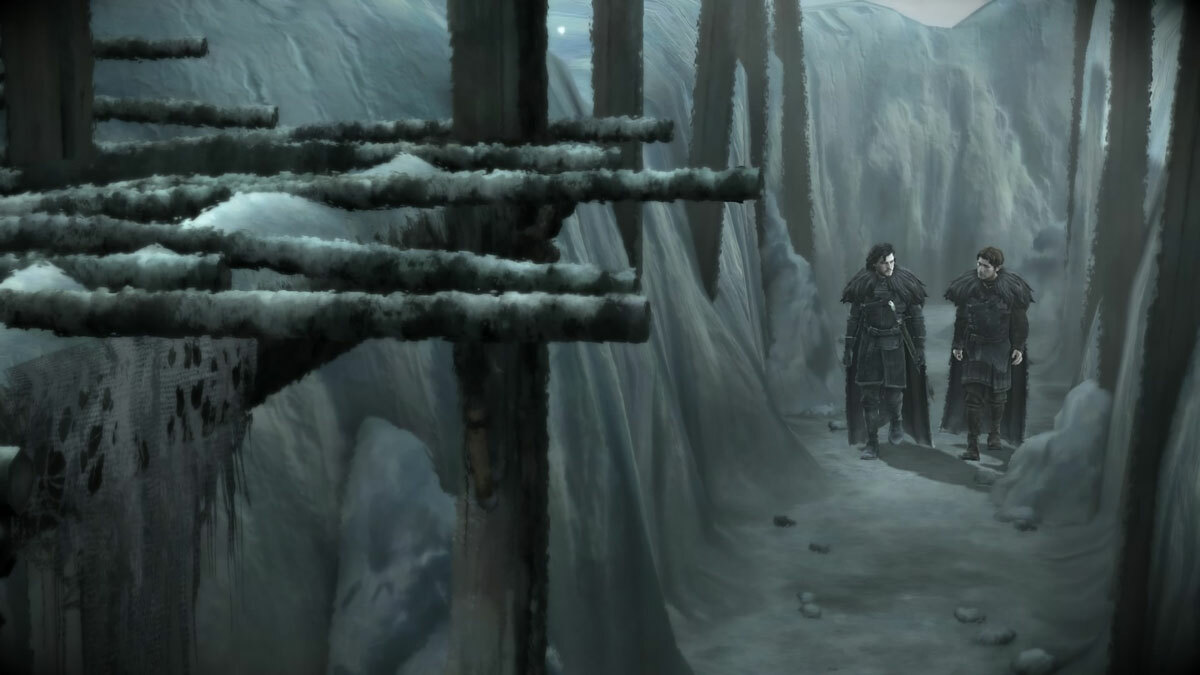
Telltale’s titles are often the subject of debate over whether or not they are actually games. And it’s true that there are few game-y elements here: barring a bit of simple quick time event button pressing to avoid gruesome deaths, your reflexes aren’t hugely important. The game is mostly dialogue-based and driven by your decisions – tough decisions that need to be made quickly and have lasting consequences. How far these consequences reach won’t be entirely clear until I’ve all got all the episodes under my belt, but if Game of Thrones is anything like The Walking Dead in this regard, the destination will be pretty much the same no matter the choices you take: what will be different – and feel like yours alone – is the journey you take to get there.
In terms of puzzle solving and the like, the series feels a little undercooked. You’re not going to be scratching your head for any extended period of time over any tasks the game tosses your way. As long as you don’t mind making difficult, thankless decisions and your reflexes are fast enough to survive the odd quick time event, you’ll breeze through the episodes. The fun is in the journey itself and the story that unfolds, not in any problem solving or hand-eye coordination challenge.
Game of Thrones Season One: Verdict
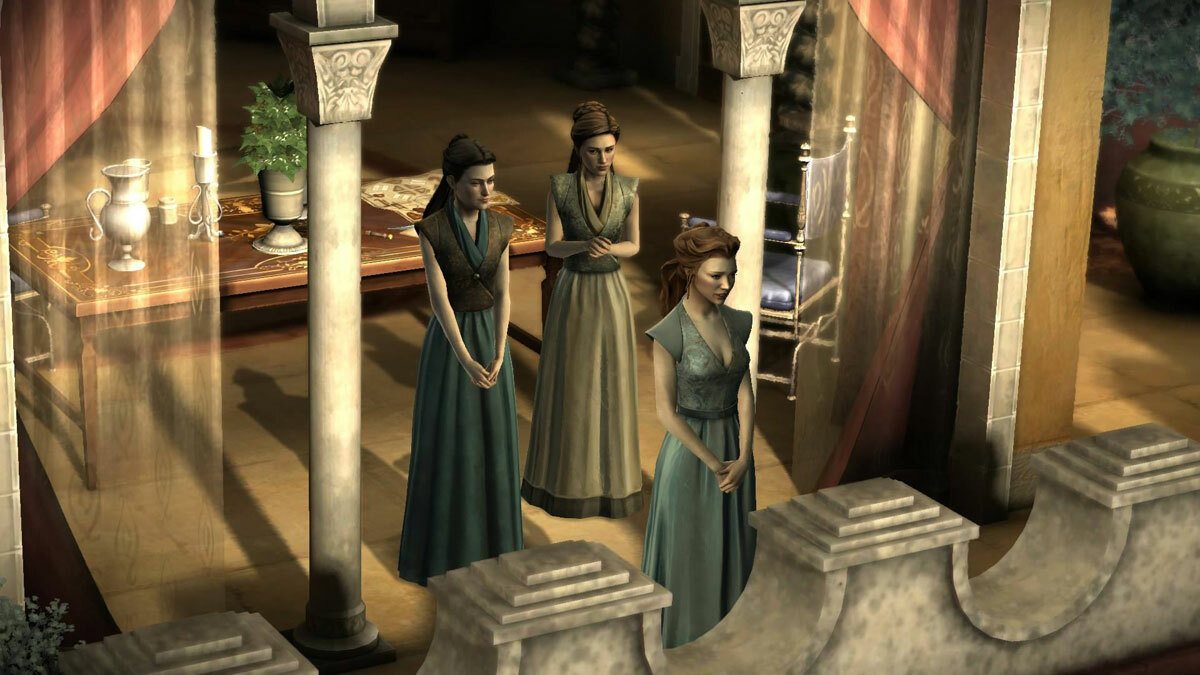
In a sense, it doesn’t really matter if it’s a game or an interactive story. Whatever box you put it into, the real question is, “Is it an enjoyable way to spend a few hours?” And the answer is yes, yes it is. (Although, after playing through the first batch of episodes, I can pretty much confirm that no, it’s not really a game – it’s an interactive story with a few quick time elements thrown in. And that’s fine.)
As it is, if you’re a fan of Telltale’s previous games, George R.R. Martin’s novels or the HBO show, you’re going to enjoy hanging out in this world (although “hanging out” more often refers to the state of people’s entrails rather than anything else here) and experiencing your own story within it. This story will end up in pretty much the same place whichever choices you make, but really… who cares? Telltale making a game where every choice leads the story off on an entirely different branch is not only impractical, it also runs the risk of delivering a boring story, but giving players the ability to make choices makes them feel like they have agency. And your choices in this game do define the Forresters as characters – they just don’t make a massive difference to what happens to (most of) them.
While I’m a little underwhelmed at the ending of the first batch of Telltale’s Game of Thrones episodes, I have enjoyed playing through it, and I will be picking up the story when it returns. Roll on the second season, I guess.
Stuff Says…
Appropriately bloody, treacherous and action-packed, but the ending left us a little underwhelmed
Good Stuff
A compelling story
Appearances by TV show cast members
Forces you to make tough choices
Bad Stuff
Do our choices really matter?
Unsatisfying ending



